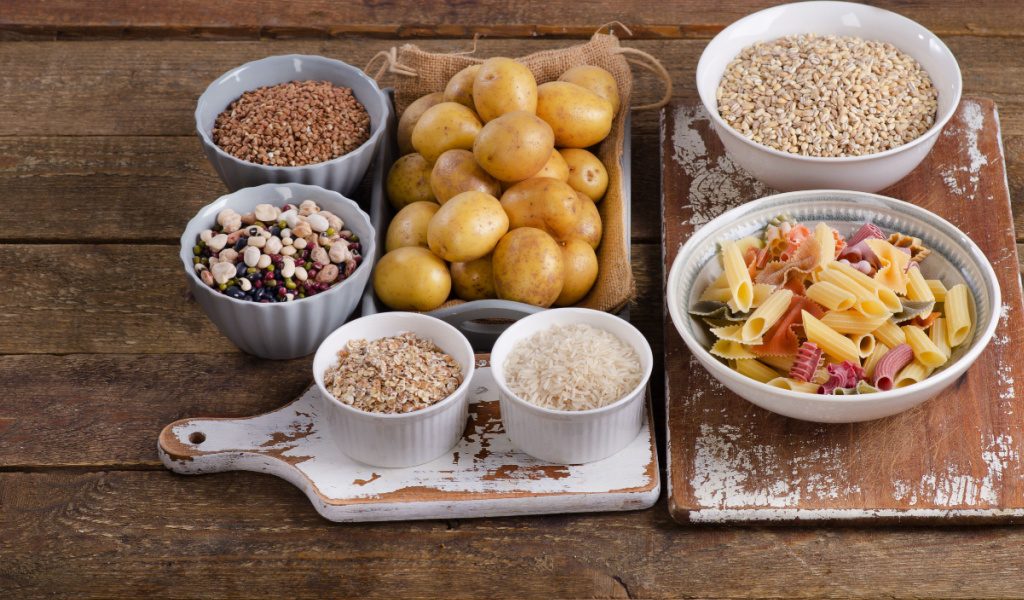Weight loss can seem like a mammoth task to many of us, and that’s the reason that most of us feel unmotivated to get started on our journey to get fit. In reality, it doesn’t have to be as daunting as that.
We all know that diet and exercise are crucial parts of weight loss, but you don’t have to have it all figured out at the get-go. There will certainly be bumps along the road, but you can help yourself by enacting a few extra changes in your morning routine that will make your weight loss journey much easier. Let’s explore some of them:

Start Your Day with a High-Protein Meal
They say that breakfast is the most important meal of the day, and that’s not for nothing! It’s imperative that you pick what you eat for breakfast carefully because it helps set the course for the day ahead. A protein-high meal is your ideal choice.
Protein is a key nutrient for weight loss because it can help avoid cravings by lowering levels of ghrelin, the “hunger hormone”, that is responsible for increasing appetite. There have been studies to back this up too. A study conducted on 15 men who ate high-protein breakfasts found lower levels of ghrelin secretion than when they ate high-carb breakfasts. In another study, 20 adolescent girls were found to have much lower post-meal cravings when eating a high-protein breakfast than when they ate their typical breakfast.
Therefore, it’s a good idea to start your day off with a high-protein breakfast. Include protein sources like eggs, Greek yogurt, cottage cheese, nuts and chia seeds in your morning routine to aid in weight loss.
Make Sure to Drink Water
Water can be really helpful for weight loss. It is 100% calorie-free helps you burn more calories and may even suppress your appetite if consumed before meals. So, starting your morning with one or two glasses of water is an easy way to enhance weight loss. Plus, it also helps you stay hydrated throughout the day.
A study conducted on a small group of people found that drinking 16.9 fluid ounces (500ml) of water increased their metabolic rate by about 30% on average.
In another study, overweight women were found to lose an extra 4.4. pounds (2 kgs) during the period of one year when they increased their water intake to 34 ounces (one liter pay day). This was a significant change since there were no other lifestyle or diet changes that were made during this time!
Morning Weigh-In
Weighing yourself every morning can be a great way to motivate yourself and maintain self-control throughout the day. It’s not just numbers on a scale. In fact, there have been a number of studies that have found that weighing yourself can help you lose more weight. Stepping on the scale regularly is found to help in self-restraint which may be why it does so. Those who didn’t weight themselves regularly were more likely to lack self-discipline and had increased calorie intake.
In one study that followed 47 people over a period of 6 months, it was found that those who weighed themselves every day lost about 13 pounds (6 kgs) or more than who didn’t. In a longer study of 2 years, adults who stepped on the scale daily shed about 9.7 pounds (4.4. kg), but those who only weighed themselves once a month actually gained 4.6 pounds (2.1 kg)!
It’s best to weigh yourself first thing in the morning, preferably after you use the bathroom and before consuming any food or drink. But remember that there are a number of influences that can cause your weight to fluctuate on a daily basis, therefore do not take the number on the scale as the end all, be all – just focus on the big picture and keep going!
Catch Some Rays
Opening the curtain to let some sunlight inside the house or spending some extra time outside the house daily can help you in your weight loss efforts significantly.
Many studies have found that exposing yourself to sunlight is one of the best ways to lose weight. Vitamin D is oil soluble, so it essentially melts the fat – especially in those who are overweight. Therefore, it is recommended that you get at least 10-15 minutes of exposure to UVB (ultra violet B rays) per day with 40% of the skin exposed.
In another study which was conducted among 218 obese women who took a placebo or vitamin D supplement for one year, it was found that they lost an average of 7 pounds (3.2kg) more when compared to those with insufficient vitamin D.
However, the amount of sun exposure one needs varies according to their geographical location and skin type.

Every Workout Counts
Working out in the morning – especially on an empty stomach is the best way to burn stored fat, making it ideal for weight loss.
Morning exercise helps in keeping blood sugar levels balanced throughout the day. A study regarding morning exercise in 35 people who were diagnosed with type 1 diabetes found that they had enhanced blood sugar control.
Exercising in the morning not only burns fat but also improves focus and cognition, puts you in a better mood, and helps you sleep better at nights.
Get a Good Night’s sleep
When you are well rested, you are less hungry. Being sleep-deprived messes with hormones in your brain called leptin and ghrelin that are responsible for controlling appetite, which in turns reduces weight gain.
Sleep deprivation has been found to have a direct correlation to increased appetite in a number of studies. From one small study it was found that a cutback in sleep increased hunger and cravings, especially for high-carb, high-calorie foods.
So, maintaining a sleep schedule that is both qualitative and quantitative becomes an effective component of weight loss together with well-balanced diet and exercise. 7-8 hours of uninterrupted sleep per night is what you should be aiming for!
Change Your Commute
People driving to work every day are gaining more weight than their colleagues on trains, buses and bikes, says a new study from Australia. Of 822 study participants, only those who got enough weekly exercise and never drove to work managed to prevent gaining weight over the course of the study.
The study, which lasted for 4 years, found that even among those who got at least two and a half hours of weekly exercise, car commuters actually gained an average of four pounds in that time. This was one pound more than people who got to work another way or worked from home.
“Even if you are efficiently active during leisure time, if you use a car for commuting daily then that has an impact on weight gain,” said lead author of the Baker IDI Heart and Diabetes Institute in Melbourne.
A simple way to ramp up weight loss is to shake things up in your commute; if you drive to work, considering taking public transport at least on alternate days. It’ll save you gas and help you lose weight!
Count Those Calories
When it comes to controlling your weight, tracking your food intake is the most powerful tool you have at your disposal. Numerous studies have showed that participants who used a tracking system consistently to self-monitor their diet and workouts lost more weight than those who did not regularly use any type of tracking system.
Entering what you eat in a food diary keeps track of what you eat and helps you to speed up weight loss and keep yourself accountable. Starting with breakfast and then continuing on with the rest of the meals you eat throughout the day, write down your intake just with a pen and paper. Alternatively, you can also use an app in your smart phone – there are tons of calorie tracking apps out there.
Conclusion
Losing weight is something majority of the world’s population would like to achieve, but it’s not an unattainable goal. All you need to do is have a solid weight loss plan along with a few small changes in your morning habits. Healthy habits in your morning routine will help set you up for success by putting you in the right mindset.
The morning habits we talked about will help you get the best outcomes when merged with a well-balanced diet and healthy lifestyle.



